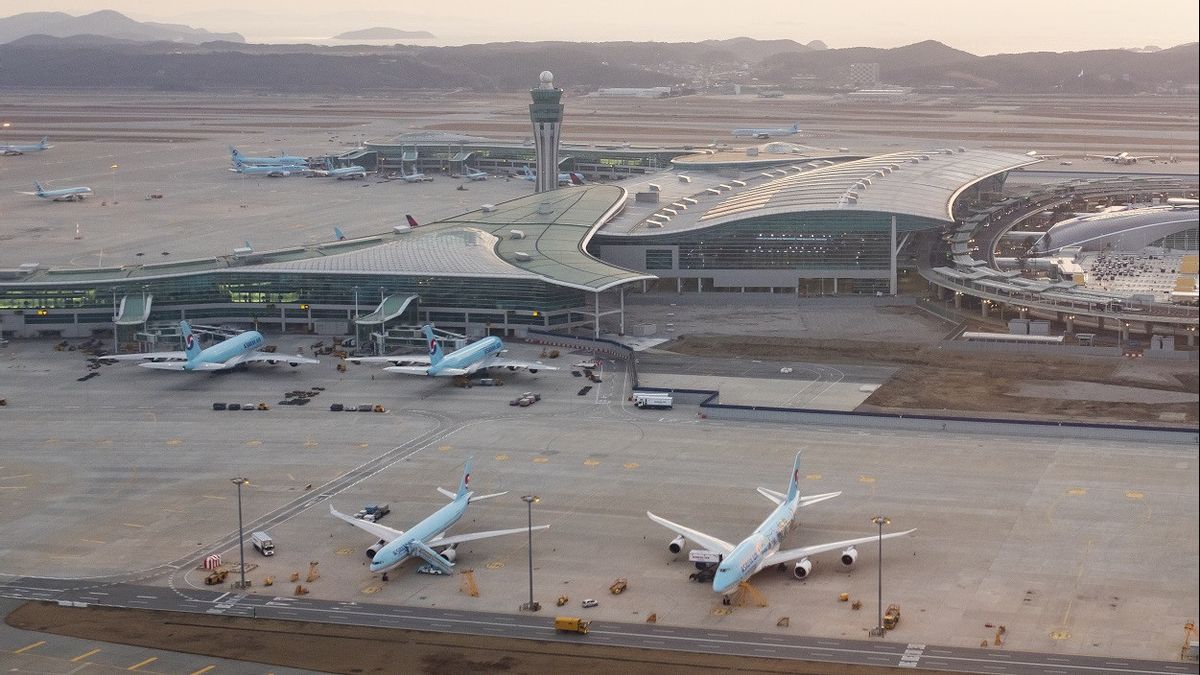JAKARTA - Chengdu has just become the third city in China to have two international airports, as part of the Bamboo Curtain country's rapid airport expansion project. China is known to have ambitions to have 400 airports operating by 2035, which means that in the next 14 years China will add about 160 airports.
The ambition has drawn criticism from critics, as it goes against Chinese President Xi Jinping's pledge to achieve net zero emissions by 2060. Currently, China is responsible for nearly 30 percent of global greenhouse gas emissions, although, on a per capita basis this is roughly in line with countries like the UK but far below the United States and Australia.
However, the emergence of a mega airport, a term for such a large airport built in several phases, has raised concerns for environmentalists, who stress we need to limit flights if we are to meet the Paris Agreement targets.
Citing Euronews July 1, aviation produces greenhouse gases from burning fuel, especially carbon dioxide, which contributes to global warming.

Economy class return flights from London to New York are responsible for about 0.67 tonnes of CO2 emissions per passenger, according to a calculator from the UN civil aviation agency, the International Civil Aviation Organization (ICAO).
That equates to 11 per cent of the average annual emissions for a person in the UK, or the full amount caused by a person living in Ghana in a year.
Aviation accounts for about two percent of the world's global carbon emissions, according to the International Air Transport Association (IATA). The organization also expects the number of passengers to double to 8.2 billion by 2037.
As passengers increase and other industries move toward more sustainable alternatives, it is likely that the proportion of overall emissions accounted for by industry will increase.
In the face of these challenges, many countries choose not to open new airports or renovate existing airports. For example, the four countries below have decided to postpone until they stop renovation projects, expansions to the construction of new airports, because of the potential environmental impact.
1. France
In February this year, the French Government announced it had canceled plans for a massive expansion at Paris' Charles de Gaulle Airport, due to climate change concerns.
According to an interview given by a French minister to Le Monde, the 9 billion euro expansion is no longer aligned with environmental policies.
The expansion plan would see 40 million more passengers pass through Charles de Gaulle, already Europe's largest airport, every year.
2. English
The expansion of Leeds Bradford Airport was temporarily suspended after the government suspended plans to build a new terminal building on the green line, which refers to a conservation area.
Despite widespread opposition from local MPs, residents and environmental groups, the plan has been given conditional approval by the City Council of Leeds, UK.
In response, the government issued a directive to the Leeds City Council, preventing council members from granting planning permits without special permission.
However, the Leeds Bradford project was not permanently suspended. The UK government is still reviewing the plan, with a decision pending.
3. South Korea
The renovation of Gimhae Airport in Busan was suspended after the government required them to undergo a basic review.
The panel in charge of the decision also said the original plan failed to properly account for the project's environmental impacts, such as noise pollution and its impact on wildlife, or possible restrictions on operating hours to prevent noise pollution for local residents.
4. Portugal
Portugal's aviation regulator refused to evaluate plans to build a new airport in Lisbon, Lisbon Montijo Airport, a project that had been under consideration for the previous five decades.
In 2019, the government said Montijo airport, where there is already a military air base, would be completed next year.
However, regulator ANAC rejected the evaluation request because not all local municipalities were happy with the plan, with some citing environmental concerns.
The English, Chinese, Japanese, Arabic, and French versions are automatically generated by the AI. So there may still be inaccuracies in translating, please always see Indonesian as our main language. (system supported by DigitalSiber.id)













